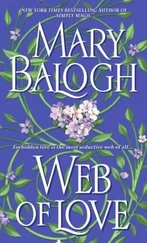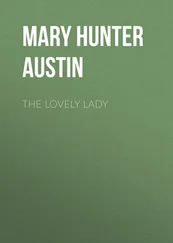Setting aside a clichéd national pride about Haitian independence, Claire goes straight to the heart of the matter: something is rotten in the second republic of the Americas. During the course of the novel, in order to understand what is taking place around her and her place in it, Claire must free herself from paralyzing self-hatred and a host of illusions about who she should be and what she should want. Although she is committed to a rigorous critique of the beliefs tattooed upon her by her parents and a Catholic education, it takes awhile for Claire to dispel her escapist fantasies, confront her assumptions, and change her commitments. When she does, she has an epiphany and kills Calédu.
Whereas in the first novella Vieux-Chauvet can still imagine a heroic confrontation with the strong man Calédu, it is clear in the second and third novellas that the battle against the regime is a losing one. The thug who blackmails the Normil family in Anger , the second novella, confesses: “You look to me, such as I am, but I am only a cog in an immense machine. The one who gives us our orders is like God, invisible and all-powerful. We get our orders and we carry them out. That’s all. We often know nothing about the reasons for the things he asks of us and we just blindly obey.” In the second and third novellas, Vieux-Chauvet depicts individuals struggling against this machine and, ultimately, losing the battle if perhaps not the war.
In Anger , which seems to take place shortly after World War II, several years after Love , the protagonists are up against organized paramilitaries who have absorbed most of the beggars that had trailed them in Love and have become “the men in black,” fascist Blackshirts that resemble Duvalier’s tonton-makout (named after the Haitian bogeyman-literally, “uncle with a basket”- tonton-makout were soldiers and civilians who organized political violence on Duvalier’s behalf). By the second novella they have more guns, uniforms, trucks, lawyers, a hierarchy, recruiting and training structures, as well as a fortress. They seem to have come into their own, policing and polarizing civilians. In the midst of the storm stands the Normil family, whose land is being occupied by Blackshirts and who must appease or confront the group’s local leader, referred to only as “the Gorilla”-a dark-skinned man whose father was once the servant of a mulatto bourgeois man he now employs. He himself was once a beggar until he joined the paramilitaries and quickly rose within their ranks because of his talent for ruthlessness. The family is unable to react as a unit until the father takes the lead by trying to pull a bait and switch. He asks his daughter, Rose, to accompany him to the office of a lawyer who represents the Gorilla, advertising her beauty until he can borrow enough money from his mistress to bribe the Gorilla and his lawyer. But he loses his wager: the Gorilla chooses the girl over the money. This is the deal he puts on the table: the girl must submit to sadistic sexual role-play and become his “girlfriend” for thirty days. Rose agrees to the deal without explicitly telling any member of her family.
Vieux-Chauvet insists on making the torture-rape victim a thinking subject. In fact, Rose can’t stop thinking. Her thoughts sometimes even wander past the fence posts that would make her martyrdom unimpeachable. But innocence is not Rose’s claim. She accepts her family’s guilt (her grandfather murdered the owner of the land who tried to cheat him out of it after he had bartered sheep for it) and her own coerced complicity in the sexual role-play She expresses a secular kind of self-knowledge and self-acceptance that includes acceptance and compassion even for her torturer:
Human beings have an eerie resemblance to certain animals. I was struck by my resemblance to a panther I saw in a movie once. Same features, same fierce gaze veiled by false gentleness, same supple neck beneath an elegant head with wide, quivering, sensual nostrils. He, on the other hand, looks like a dog. One could easily mistake him for a gorilla, but that’s not the case. His hands are misleading since they’re long and hairy, but he’s just a dog; a poor dog craving affection who turns into a wolf as a result. […] An animal stench in our sweat, all of us. Man is just an animal hemmed in by a narrow conscience; this is why it is his lot to suffer. The struggle between mind and beast tears at him from within. A tragic fate, a relentless struggle where the mind rarely wins. God has toyed with us…
Though “the mind rarely wins,” that is nonetheless where she turns. She bows neither to the Gorilla nor to God. Nor does she seek shelter in the arms of any member of the family she is working to save.
The last novella, Madness , is a first-person narrative by René, a lower-class mulatto poet hiding inside his shack with two, then three, other poet-friends. He is living three plots at once: he is a starving civilian in a third-world country under siege, an armchair guerrilla fighting a war against what he perceives as an army of shape-shifting devils whose faces morph into the blinding metal of their helmets and weapons, all while hoping, like any young man his age, to catch a glimpse of the neighbor’s daughter. During this time René and his friends argue about the past. He claims that they have been arrested and beaten by the commandant before. The others do not remember, although one of them has a serious injury to the head he can’t explain. René and his friends seem to be lost at the intersection of false memory and oblivion. In this narrative, which keeps veering into something I can only describe as gothic science fiction, Duvalier-ism has transformed Haitian society beyond recognition: a surreal, war-ravaged landscape in which the church steps are littered with the executed bodies of men, women, and children, and where two lovers-the narrator and the bourgeois girl he loves-are reunited in the torture chamber. This novella, perhaps the most pessimistic of the three, describes the arrested development and death of an entire generation.
Although there are characters with the same names in the three novellas (a Mathurin and a Jacques in both Love and Madness) , Vieux-Chauvet abstains from giving them the same biographies. This is not a literal trilogy that tells one story. Rather, its alignment is structural. It shares the three unities of classical tragedy: unity of place (Haiti), unity of time (after the 1915-34 American occupation), and unity of action (terror). To these three unities, I would add a fourth: unity of purpose. In each of the novellas, the “black power” populist pieties of a dehumanizing dictatorship collide with individual critical thought. At its core, the plot of each novella is a confrontation between a narrow-minded henchman with a gun at his hip or pliers in his hands, and Haitian civilians haplessly struggling up a steep learning curve, facing upheaval within and without.
Across the three novellas, Vieux-Chauvet’s protagonists have at least one thing in common: sooner or later they slip their racial, social, political, and religious bonds. They do so by learning to question everything. This is the cumulative thrust of the trilogy-and this unity is reflected in the history of its composition and publication. The author’s daughter Régine Charlier recalls that her mother wrote the trilogy over the course of six months in 1967. She shut herself up in her room and wrote in secret, against the backdrop of the reign of terror of François Duvalier, who had by 1964 proclaimed himself president for life. She sent one manuscript (not three) to Paris and threw a party when she got a contract for the book with Gallimard, the premier French press. One can’t help wonder if some members of Haiti Littéraire, a poets’ group of which Vieux-Chauvet was an honorary member in the early sixties and which included Villard Denis (aka Davertige), Anthony Phelps, René Philoctète, Roland Morrisseau, and Serge Legagneur, were able to attend the party. At the party she recited excerpts from the book for the first time. It was then that family and friends expressed concerns about how the book might, no matter what absurd formula Duvalier used to determine who counted as an enemy of the state, put the life of every member of her family and her husband’s family at risk. That response made Vieux-Chauvet, who was by then a mother of three, a committed writer. She stood up for her book and refused to postpone its publication. She hoped that it would cause an international scandal and draw attention to Haiti.
Читать дальше












